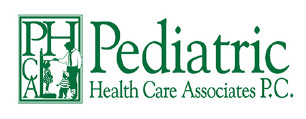Before you call:
Take note of:
- Your child’s allergies to medications (if any)
- Any medications or other treatments your child is presently receiving
- Immunizations (shots) recently received
Leaving a message for our triage nurses:
Please provide the following information at every call:
- Your child's name (spelling the last name)
- Date of birth
- An unblocked telephone number with area code
- Your child's primary office
- Your local pharmacy’s phone number
- A brief history of the problem:
- Give the most important information first and try to be brief. For example, "My child has had a fever of 101 under the arm and vomiting six times a day for two days."
- Report any chronic illnesses your child has, such as diabetes, asthma or heart disease; any allergies or immunizations (shots) recently received; and any medications or other treatments your child is presently receiving.
A parent's intuition is very important.
- If you feel very nervous about your child's condition, say so.
- If you believe that your child looks well despite his present symptoms, report that also.
Waiting for a call back:
For urgent messages:
- A triage nurse should return your call within 2 hours.
- If your child is experiencing a medical emergency, please hang up and dial 911
For non-urgent messages:
- A triage nurse should return your call within 2 to 4 hours.
- Please try to avoid return calls until that time has elapsed; our nurses answer messages in the order they were received.
At the completion of your call, you should understand:
- The most likely cause of your child's condition.
- Which medicines or treatments should be given.
- What signs or symptoms to watch for.
- When, and under what circumstances, you should call the office back.
- If you don't understand the instructions given, ask to have them repeated.
If you are instructed to come to the office or to go to the emergency room:
- Obtain travel instructions before leaving home.
- When traveling in a car, drive slowly and carefully, and use a restraining car seat for your child.
- If you feel too nervous to drive, call a friend or a taxi.
- If an ambulance is needed, the nurse may be able to call it for you.

